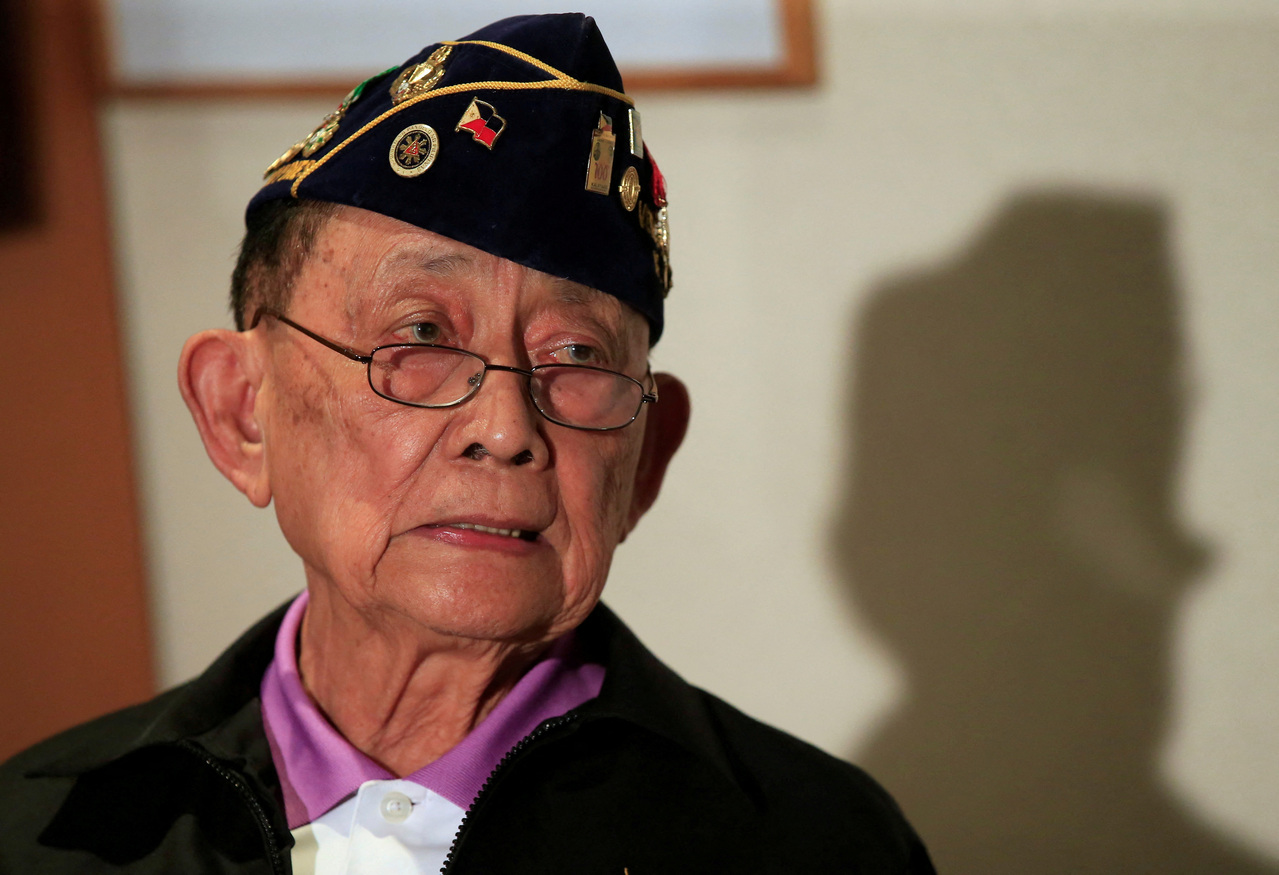Former Philippine president Fidel Ramos, who helped end Marcos dictatorship, dies at 94
Sign up now: Get insights on Asia's fast-moving developments

Former Philippine president Fidel Ramos died on July 31, 2022.
PHOTO: REUTERS
MANILA (BLOOMBERG) - Mr Fidel Ramos, the former Philippine president who was head of the national police under Ferdinand Marcos before defecting and joining the "People Power" protests that ousted the dictator in 1986, has died. He was 94.
Mr Ramos died on Sunday (July 31), according to radio station DZRH and state-owned broadcaster PTV, without citing the source of the information.
Popularly known as FVR, Mr Ramos served as defence chief in the first post-dictatorship government led by Mrs Corazon Aquino, widow of the slain senator Benigno Aquino Jr., a prominent Marcos critic.
He won the presidency himself in 1992 - the first election under the current Constitution - and was credited with steering the economy into a period of rapid growth until the 1997 financial crisis hit South-east Asia.
A career military officer, Mr Ramos gained prominence in 1986 when he and then Defence Minister Juan Ponce Enrile broke from Marcos, whom they accused of rigging elections that year to stay in power.
Mr Ramos said he defected because the dictator had prioritised personal interest and was no longer a capable commander-in-chief. They holed up in police headquarters in the capital, expecting an attack from pro-Marcos forces.
However, members of the public heeded a call from a Roman Catholic cardinal to gather around the building, forming a human barricade that protected Mr Ramos, Mr Enrile and their troops. This started the People Power Revolution that eventually ousted Marcos.
In honouring him in 2000, the alumni group of the United States Military Academy at West Point cited his "paramount role in returning democracy to the Philippines", for which he was named a military hero of the revolution.
West Point
Mr Ramos was born on March 18, 1928, in the municipality of Lingayen in Pangasinan province, north of the capital, the son of lawmaker and diplomat Narciso and educator Angela.
He graduated from West Point in 1950 and earned a master's degree in civil engineering from the University of Illinois the following year. He earned two more master's degrees: in national security in 1969 from the National Defence College of the Philippines, and in business administration in 1980 from Ateneo de Manila University, according to the Ramos foundation.
His early career was spent in the Philippine army in areas including reconnaissance and special forces. He climbed steadily up the ranks and in 1972, was named chief of the Philippine Constabulary.
Three years later, he also became director-general of the national police. He became vice-chief of staff of the armed forces in 1981 and served as acting chief towards the end of Marcos' reign.
Mr Ramos narrowly won the presidency in 1992 with less than a quarter of the vote - the lowest plurality in the nation's electoral history up through the 2022 vote, which Marcos's son Bongbong won by a landslide. Mr Ramos was also the first Protestant president in the Catholic-majority country.
Among his major moves in office was to sign a visiting forces agreement with the US, the country's former colonial ruler and post-war ally. The pact went some way to restore defence ties after the Philippine Senate in 1991, rejecting appeals from then President Aquino, voted to boot the American military from its bases in the country, arguing in part that their presence undermined national sovereignty.
The new deal facilitated American soldiers' access to the Philippines and bolstered the nations' 1951 Mutual Defence Treaty, where they pledged support in case of foreign attack.
'Sound footing'
In 1996, Mr Ramos entered into a peace deal with the separatist group Moro National Liberation Front, ending 25 years of conflict. His economic stewardship won plaudits. The Philippines was on a "sound footing" relative to its neighbours when the Asian financial crisis hit, as consumption and overseas workers' remittances supported the economy, according to the Asian Development Bank.
Mr Ramos also promoted investment to the Philippines through state visits and summit meetings, and is credited with reviving and expanding trade links with Indonesia, Malaysia and Brunei. In 1997, Aquino and then Cardinal Jaime Sin led successful protests against Mr Ramos' plan to amend the Constitution to allow him to seek re-election.
Mr Ramos remained a political force even after his presidency, with the party he founded still active in government. He was among the first prominent politicians to urge then Davao Mayor Rodrigo Duterte to run for president, which he did successfully in 2016.
Mr Ramos briefly served as Mr Duterte's special envoy to China, but later said that the firebrand leader's government was a "huge disappointment and letdown". In 1954, he married Ms Amelita Jara Martinez, who is described as a teacher and environmentalist on the Ramos foundation website. They had five daughters.


